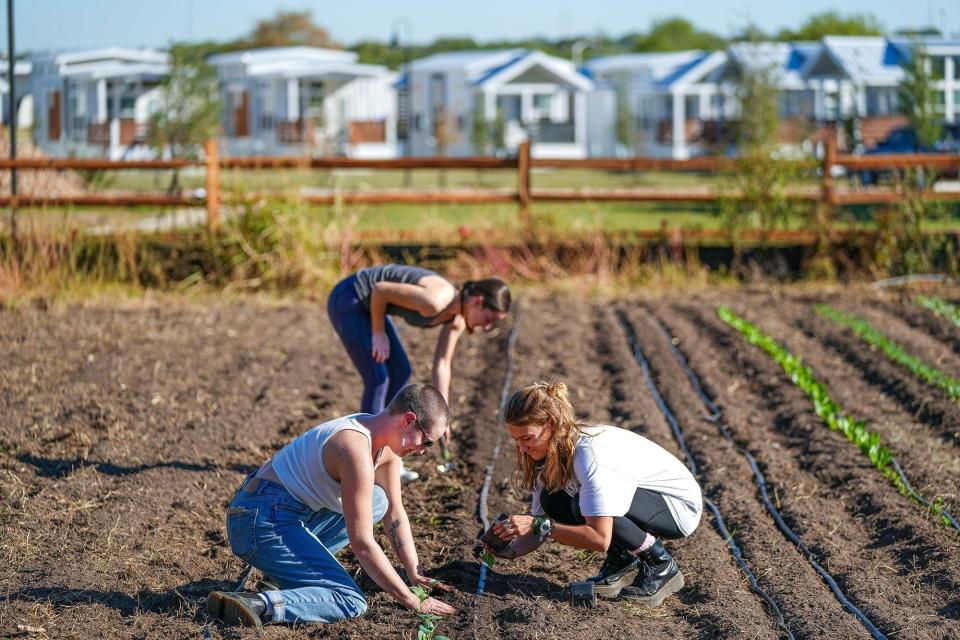Opinion: If you care about your kid’s nutrition, you should care about the Farm Bill
No one wants to eat in the bathroom. So when a lifeguard told me I couldn’t breastfeed my son at the local pool—that instead, I should feed him in the changing room—I was stunned. I never thought feeding my child would be controversial, but clearly it was. This incident kicked off my first foray into activism almost 20 years ago: fighting for the right to breastfeed my son at the pool, park, or wherever he might get hungry. With the help of some other passionate moms, we were able to amend Arizona’s indecent exposure laws, and prioritize the nutrition of kids all over the state.
Since then, I’ve seen that fighting for healthy food options goes way beyond breastfeeding. It’s about which grocery stores are in our neighborhoods, what meals we serve in our schools, and where we build clean, safe playgrounds. This effort is particularly important here in Texas: Our state ranked second to last for children’s healthcare this year, and 50 percent of kids here don’t eat a daily vegetable. As I tried to find the healthiest options for my family, I discovered a way to take care of not just the food my kids eat, but the environment they live in: regenerative farming, a type of agriculture that prioritizes biodiversity and soil health so that our farms heal the land they’re on instead of harming it.
Today, I run a program called Fearless Farmers, where we teach people of all ages about regenerative and eco-friendly farming through tours, camps and homeschool programs. Whether we’re showing toddlers the life cycle of a seed or helping parents use regenerative practices on their own land, we’re fighting to bring healthy, nutritious food to people of all ages. I’m proud to help train and support my peers across the state—and country—who are running small, sustainable farms that feed their neighbors.
But right now, the agriculture industry is making our job harder. Our current system rewards huge factory farms that prioritize profit over the planet. This model has ultimately contributed to climate change, causing frequent environmental disasters that hurt farmers and put healthy food out of reach for so many communities. We need to break this cycle. That starts with the Farm Bill.

Congress is currently deciding whether or not they’ll fund the kinds of programs that keep small, regenerative farms operational. Whether it’s grant money from programs like the Environmental Quality Incentives Program, which supports farmers who want to make their operations more sustainable, or Regional Climate Hubs that provide us with high-quality environmental research, small farmers rely on these resources to keep our businesses up and running. Without them, it won’t just be farmers that suffer. It will be everyone who counts on healthy food on their grocery shelves and a healthy planet to grow it on.
18 years ago, I fought to make my own choices about how to feed my child. It’s the same battle I’m fighting today, not just for current generations but for the generations of children to come who deserve to inherit a healthy, livable planet capable of producing fresh, clean food.
In my Fearless Farmers camp, I ask kids to imagine cutting an apple in quarters. I tell them: set three of those quarters aside—that’s how much of earth is water. That last quarter is all of the land we have, and once you deduct deserts, polar ice caps, and other inhospitable environments, you’re left with just a sliver of the apple—1/132th, to be exact. That tiny piece represents all the land we have to build, explore, and farm with. It’s not a lot. We need to protect it. And we need Congress to help us do it.
Milliron is the co-founder of Fearless Farmers and the owner of Deeply Rooted Ranch in Burton, Texas.
This article originally appeared on Austin American-Statesman: Opinion: If you care about your kid’s nutrition, you should care about the Farm Bill

